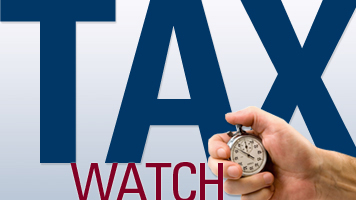
IRS officials discussed recent developments in unilateral international tax enforcement during an American Bar Association webcast.
IRS Officials Discuss Unilateral International Tax Enforcement Developments
IRS officials discussed recent developments in unilateral international tax enforcement during an August 15 American Bar Association webcast. These developments included the new Offshore Voluntary Disclosure (OVD) Program, increased use of John Doe summonses in private banking, tax treatment of entertainers’ and athletes’ income, and cases concerning willful failure to file the FBAR.
Many carried the common theme of being favorable to the government and conductive to an increased exchange of actionable information, officials reported. The government panelists also covered bilateral initiatives, such as tax treaties, and reported that the U.S. was awaiting ratification of numerous tax information exchange agreements (TIEAs) with several countries, including Brazil, Chile, and Colombia.
OVD Program
On June 26, the IRS released new guidance in the form of frequently asked questions (FAQs) for its third OVD Program, reported John McDougal, special trial attorney, Office of Chief Counsel, IRS Small Business and Self-Employed Division. The third program — unlike the initiatives from 2009 and 2011 that have resulted in $5 billion collected — has no deadline as of yet, although IRS Commissioner Douglas H. Shulman has stated this may change in the future. The new OVD Program is less favorable to taxpayers than the previous two initiatives. For example, it imposes a higher Title 26 offshore penalty of 27.5 percent. This was to ensure that taxpayers who waited to disclose their assets do not receive treatment as favorable as those taxpayers who disclosed earlier.
In a limited number of cases, McDougal stated, the penalty would be lower. Taxpayers whose highest aggregate account balance in each of the years covered by the OVD Program was less than $75,000 will qualify for a 12.5 percent offshore penalty. Other circumstances listed in the FAQs allow for only a 5 percent penalty, McDougal said. For example, certain U.S. citizens who have moved abroad and become permanent residents of a foreign country may be eligible for the lower 5 percent penalty if they can make a good-faith showing of timely compliance with all tax reporting and payment requirements in the country of residency, and they have only $10,000 or less of U.S. source income each year.
Private banking
McDougal stated that the IRS is currently in the process of investigating many of the taxpayers potentially involved in foreign tax shelters whose information was disclosed recently under an agreement between the United States and the Swiss bank, UBS AG. All penalties are currently being considered in those cases, according to McDougal, Ultimately, the IRS may not impose all available penalties. In the meantime, the IRS is waiting for the results of its John Doe summons issued to HSBC India.
The IRS panelists stated that all of its John Doe summonses have produced actionable information thus far. Although the IRS is required to obtain the approval of a federal court prior to issuing a John Doe summons, officials reported that the IRS has obtained approval 100 percent of the time.
In addition, the government has experienced success in serving grand jury subpoenas to obtain offshore bank account records belonging to taxpayers under investigation. The government has used two main arguments to circumvent the Fifth Amendment privilege against self-incrimination in those situations. First, the IRS has successfully argued that, if it already knows about an offshore account, the taxpayer is not preventing disclosure of incriminating information by not turning over information. Second, the government has been able to take advantage of the new required records exception to the Fifth Amendment, officials said.
Other developments
Thomas J. Sawyer, senior litigation counsel and counsel for international tax matters, Department of Justice, Washington, D.C., also discussed recent cases that likely will have an effect on the government's enforcement of international tax law in the future. First, he cited the recent Fourth Circuit Court of Appeals case J. Williams, CA-4, 2012-2 USTC ¶50,475, concerning a lawyer's willful failure to file an FBAR. The lawyer had a foreign offshore account but argued that he did not know of the requirement to file an FBAR because he had not read the explicit instructions underneath a checkbox on a Schedule B that he had filled out.
©2012 CCH. All Rights Reserved.
